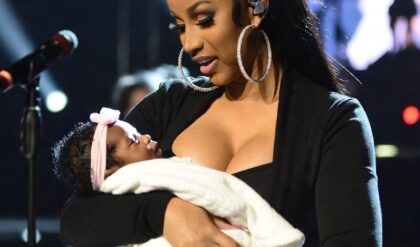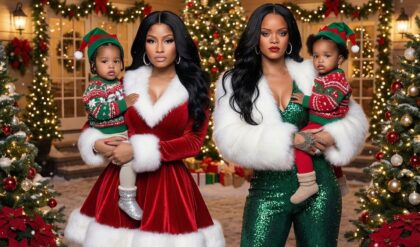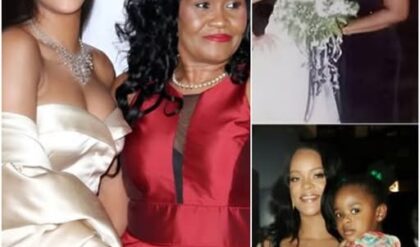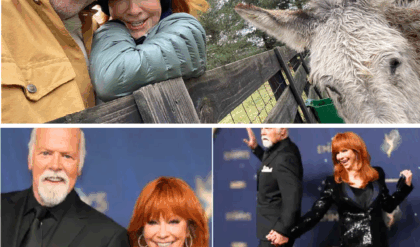Godzilla: Final Wars’ human storyline is as exciting as Godzilla’s rampage, which is something the MonsterVerse could greatly benefit from.
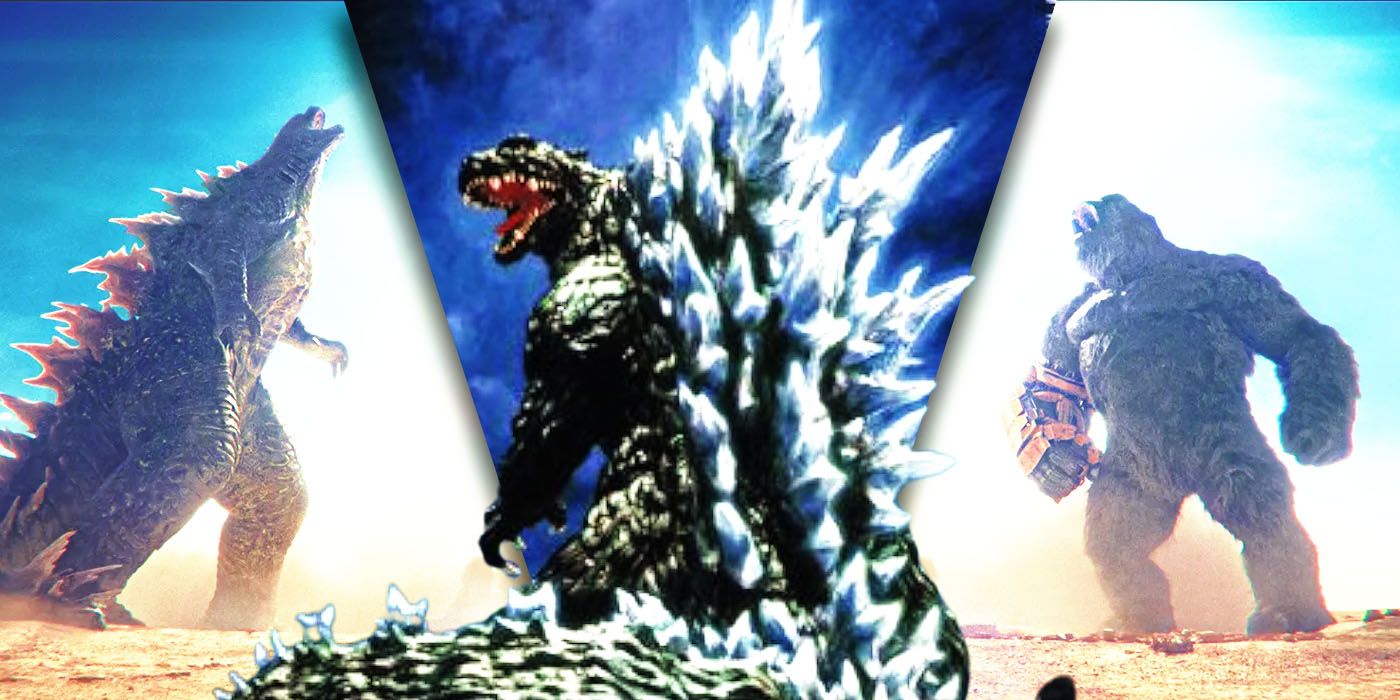
2004 was the year Godzilla celebrated his 50th anniversary after angrily making his landfall on the human civilization in the 1954 classic of the same name. To celebrate such an incredible milestone, Toho wanted to go out guns blazing since there was a feeling that the King of the Monsters would need to go a long break after the abysmal theatrical returns of the last two movies. The result was Godzilla: Final Wars, one of the most bizarrely over-the-top, genre-bending, action-packed movies to have ever come out of the Millennium Era. Despite its financial failure, the film has amassed a cult following two decades later.
Events of Godzilla: Final Wars are now a distant memory. Ever since Legendary Pictures created the MonsterVerse, the world has opened up to the idea of CGI-modeled titans raging through cities. Even Toho has tried to emulate the formula in its own way, balancing the human drama and the kaiju mayhem with two back-to-back critically acclaimed movies, even winning a Visual Effects Oscar for Godzilla: Minus One. But one of the glaring flaws of Legendary’s Godzilla line of films has been its unengaging human plotlines and lackluster script. In contrast, Godzilla: Final Wars runs on the energy of its characters – something that the MonsterVerse can learn from.
Godzilla: Final Wars Knew What to Do with Its Characters
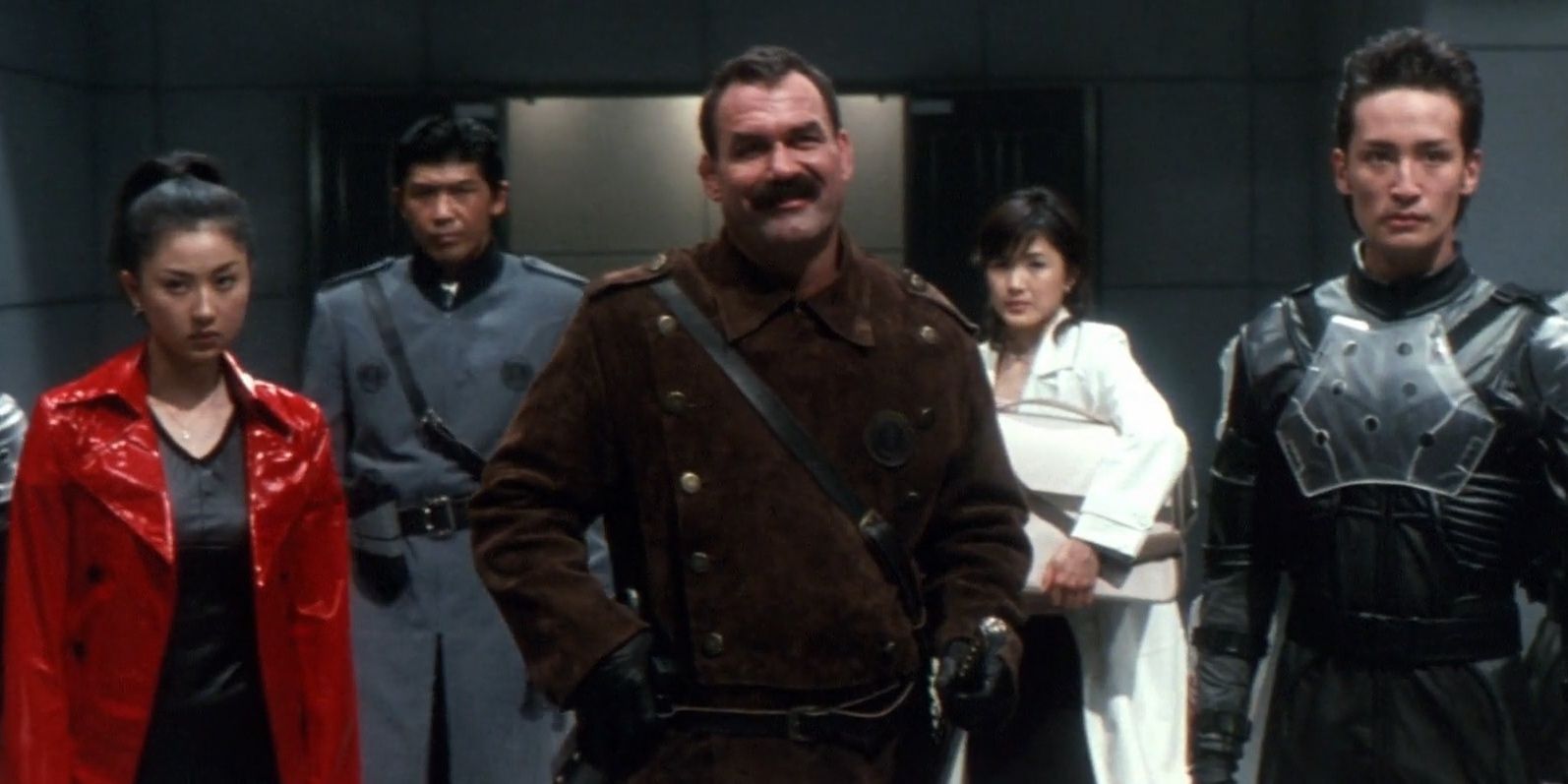
Title
Produced By
Directed By
Rotten Tomatoes Score
Godzilla: Final Wars
Toho
Ryuhei Kitamura
50% (Critic Score) 71% (Audience Score)
Director Ryuhei Kitamura’s eclectic style was far from Toho’s usual cup of tea. From Matrix-esque fight scenes to inspired plot points straight from Independence Day, among many others, Godzilla: Final Wars looked like a big-budget Hollywood movie with massive explosions and expensive special effects. The main plot had similarities with 1965’s Invasion of Astro-Monster, where the Xiliens from Planet X abducted Earth’s titans to hold the world hostage. But this time, the Earth Defense Force had mutant humans with superhuman strength and skills to protect the planet. Such a display of power was possible because of the film’s overtly brazen characters. They are a determined bunch, ready to thwart any attacks from monsters or aliens, having the firepower to match their confidence. Final Wars made sure their human characters were on equal footing with the antagonists, which is no mere feat in a movie that had fourteen kaiju to take care of.
Legendary’s MonsterVerse lacks the same presence from its characters as Final Wars. Still in its formative stage, the MonsterVerse stories are rooted in a sense of discovery of the natural world. While 2014’s Godzilla was the first contact between the kaiju and human species, its successive sequels opened up the possibilities of alien kaiju, Hollow Earth, and the general theme of benevolent and evil monsters. Human characters see the changed world through the lens of awe or find these colossal beasts a danger to their way of life. As their motivations become tied to these kaiju, they inadvertently become the supporting cast in a larger narrative involving world-shattering monsters. Unlike the humans in Godzilla: Final Wars, the sole purpose of their MonsterVerse counterparts comes down to driving the plot toward helping the monsters shine on screen.
Godzilla: Final Wars does not suffer from such skewed representation as the film gives almost the same agency to its human characters as it does to Godzilla. Despite being the titular character, the King of the Monsters appears only for the first few minutes before disappearing from the screen for an hour. Not only do the humans carry the story forward during this time, but they are also the ones most involved in the plot, taking part in swashbuckling action sequences, dramatic twists, and solemn heart-to-hearts. Although the MonsterVerse films need the humans to play their part for the plot to progress, they mostly pass the onus of taking the story past the finish line to the kaiju hero. On the other hand, Final Wars‘ human characters fight the main antagonists till the very end and leave the Xilien-controlled kaiju to Godzilla, creating a symbiotic narrative where each plays to their strengths.
From Kazuki Kitamura playing the villainous Controller of Planet X to former MMA fighter Don Frye showing off his glorious mustache as captain of the Gotengo, Final Wars is rife with iconic characters, even though not all of them are human. Kitamura’s role makes a memorable dent in the script as a strong villain whom the humans needed to vanquish if Earth had any chance of survival. While the MonsterVerse movies may also have notable characters, with Ken Watanabe’s Ishiro Serizawa being a prominent example, the franchise has a villain problem. Both the Godzilla: King of the Monsters and Godzilla vs. Kong movies made a conscious effort to introduce human enemies next to evil Titans. But the experiment falls apart when the story sacrifices these characters to give more limelight to the monsters. In lieu of a strong adversary to challenge the human characters at a cerebral level, as the Controller does in Final Wars, MonsterVerse movies rely on the quirkiness of the actors to make their characters stand out.
MonsterVerse Has a Different Vision Than Godzilla: Final Wars
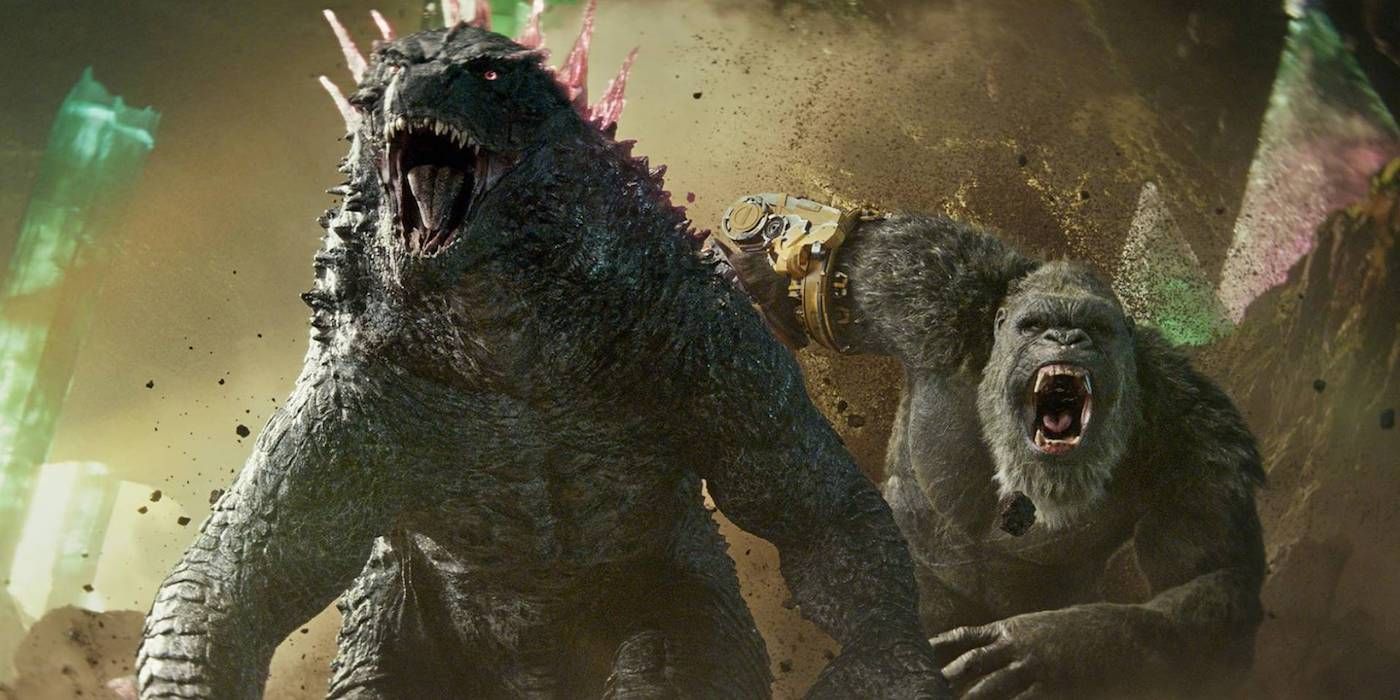
MonsterVerse titles in chronological order of release:
Godzilla (2014) directed by Gareth Edwards.
Kong: Skull Island (2017) directed by Jordan Vogt-Roberts.
Godzilla: King of the Monsters (2019) directed by Michael Dougherty.
Godzilla vs Kong (2021) directed by Adam Wingard.
Netflix’s Skull Island (2023) developed by Brian Duffield.
Apple TV+’s Monarch: Legacy of Monsters (2023) developed by Chris Black.
Godzilla x Kong (2024) directed by Adam Wingard.
The MonsterVerse is developing along a similar path to the classic Toho films, starting off with serious themes of nature and natural order before delving into camp. Ironically, the Toho movies became more outlandish with the introduction of Kong in the 1962 film King Kong vs. Godzilla, and the same thing happened in the MonsterVerse with the release of Godzilla vs. Kong. Through the different eras, Toho movies have depicted humans as second fiddle to Godzilla’s shenanigans, leaving most of the heavy lifting to the King of the Monsters. And the MonsterVerse films seem to have a similar idea but on a grander scale.
Godzilla and his enemies often stand as metaphors for man-made disasters. On an allegorical level, the rampage of the monsters is nothing other than the environmental destruction human beings have wrought in their hubris. When the human drama acknowledges this dark history of humanity, only then do the characters start to give meaning to their actions. This is why the characters from the 1954 Godzilla movie have always stood out, and so have the protagonists of the 2014 movie to an extent.
However, the recent MonsterVerse films are too focused on creating spectacles than having an underlying political message. In that regard, Godzilla: Final Wars also does not have an overarching theme and is heavy on action. The reason Final Wars manages to create an exciting plot for its human characters is that the film cherry-picks the best elements from the past and still leaves behind a standalone movie, taking inspiration from Hollywood. A marriage of old Godzilla films and Western action movies, Final Wars lets the humans have their fun first and then proceeds to show the kaiju mayhem in full force.
With the MonsterVerse movies getting bolder and bigger with every iteration, the Titans win the popularity poll by a large margin. The Godzilla franchise is one of those unique properties where monsters are the most bankable stars, and the humans are just expendable pieces of the puzzle. In MonsterVerse, the role of humans is to provide exposition and unearth the mystery that troubles Godzilla, who is seen as a protector of the natural world in the Legendary line of films. The recent addition of Kong and Mothra to the list of Godzilla’s allies means human characters are now outnumbered and outmaneuvered on screen time. Unless the movies take a drastic step to give humans a separate narrative as Final Wars does, MonsterVerse’s human characters will always remain in the shadows of these great kaiju.
Monsterverse Stories Have Deeper Emotional Roots
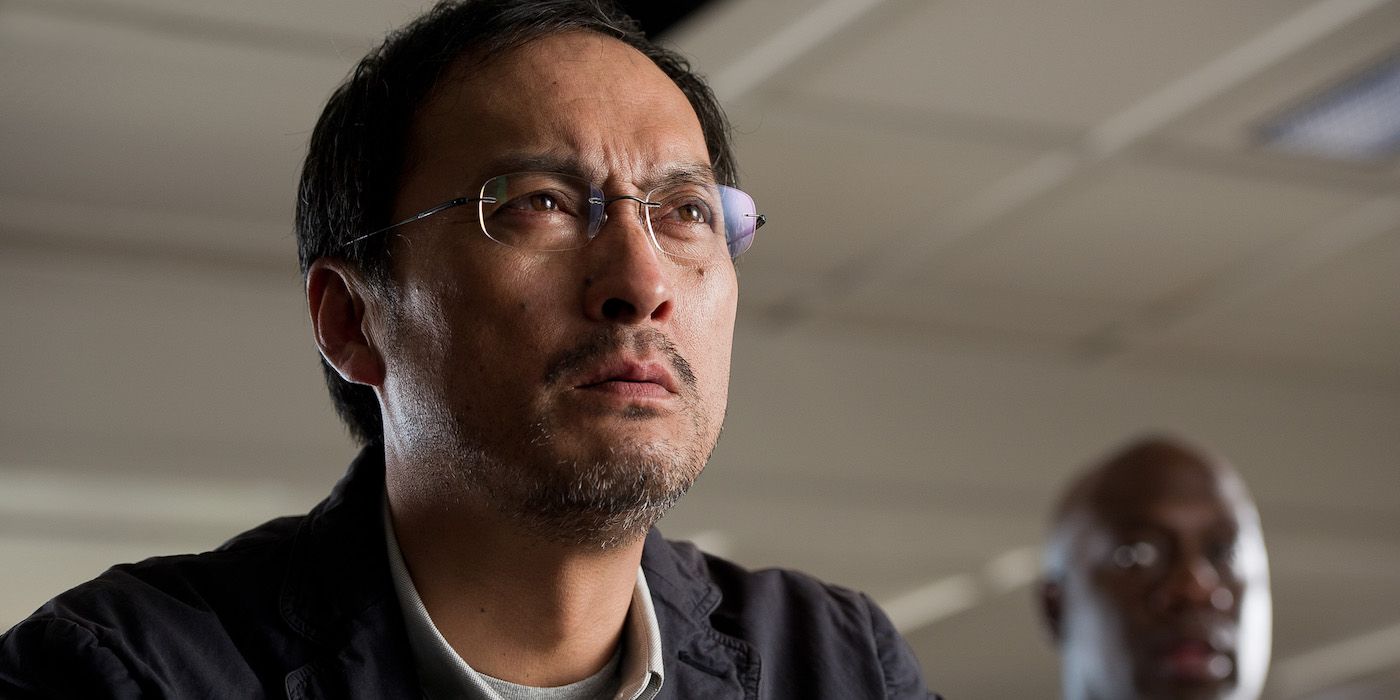
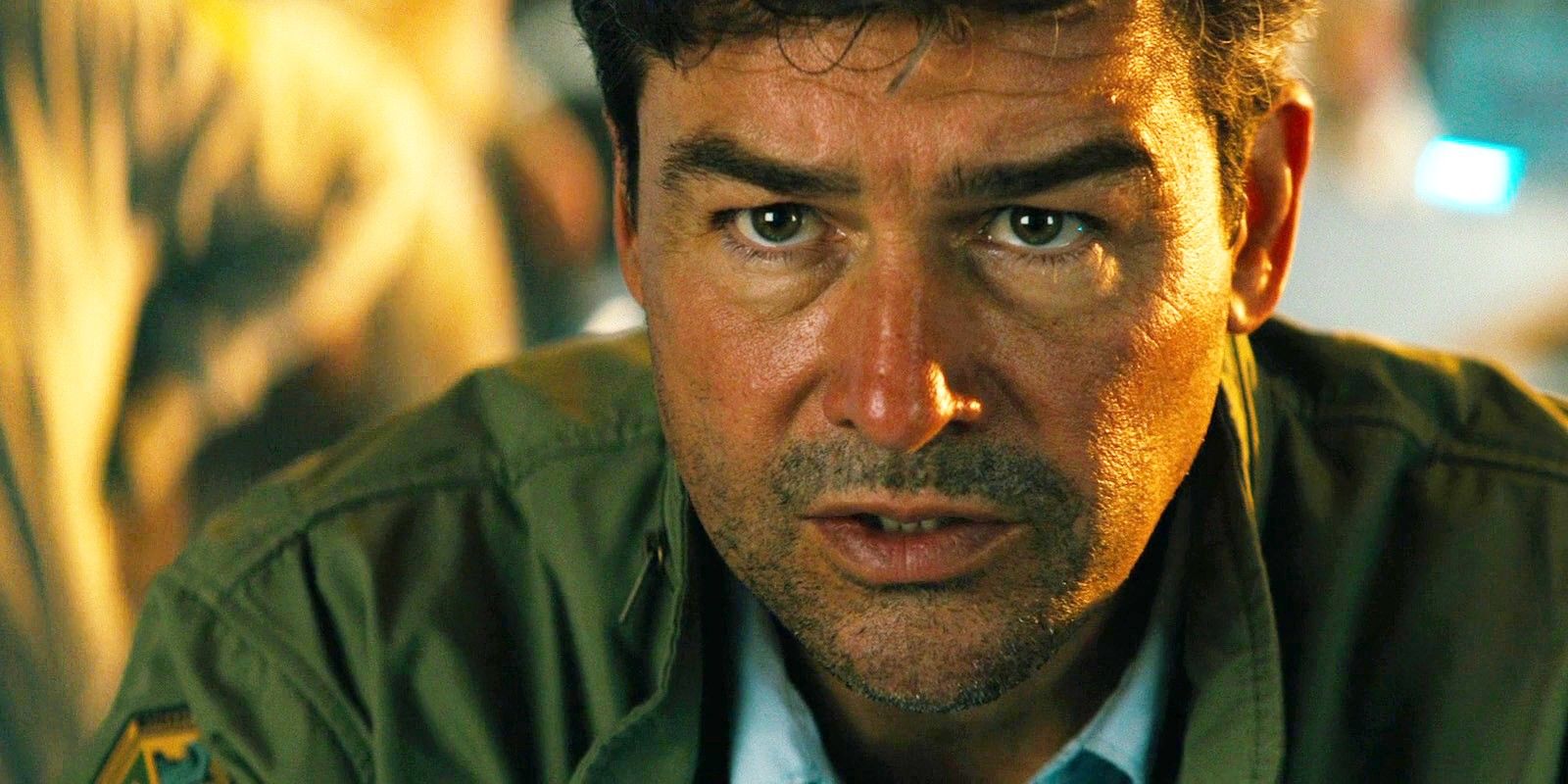
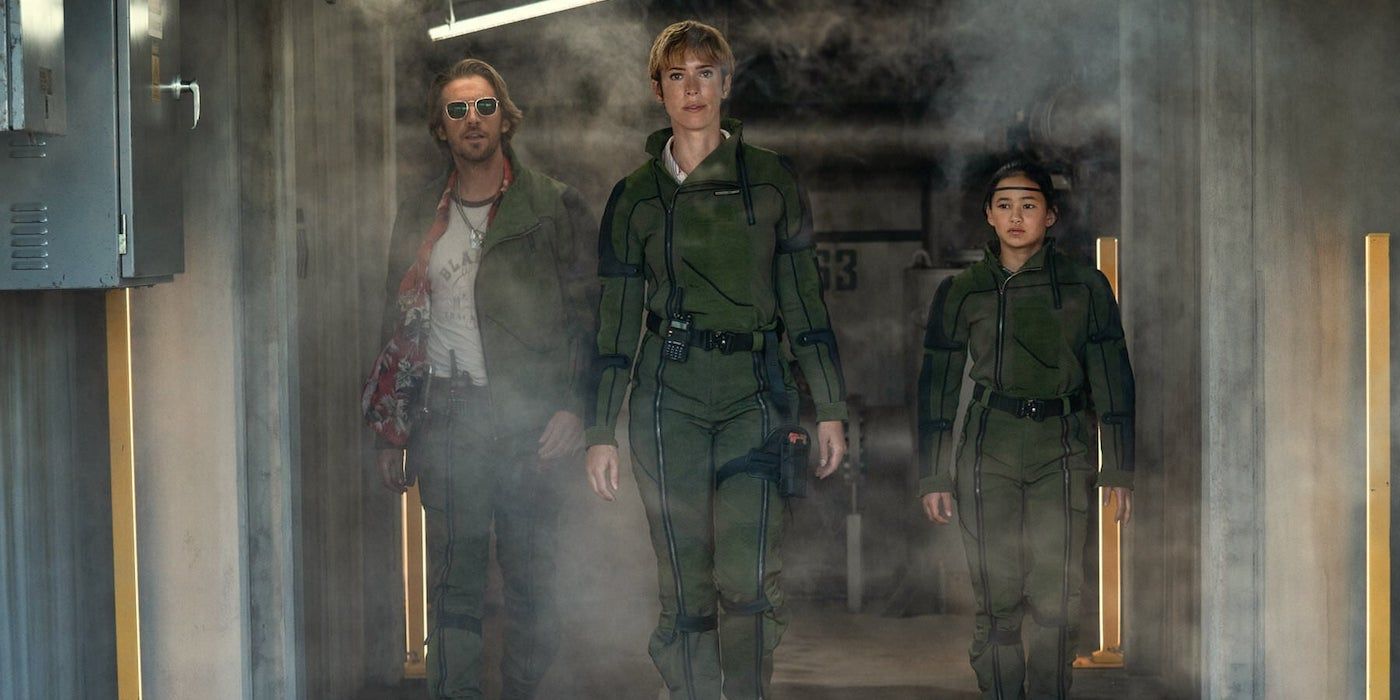
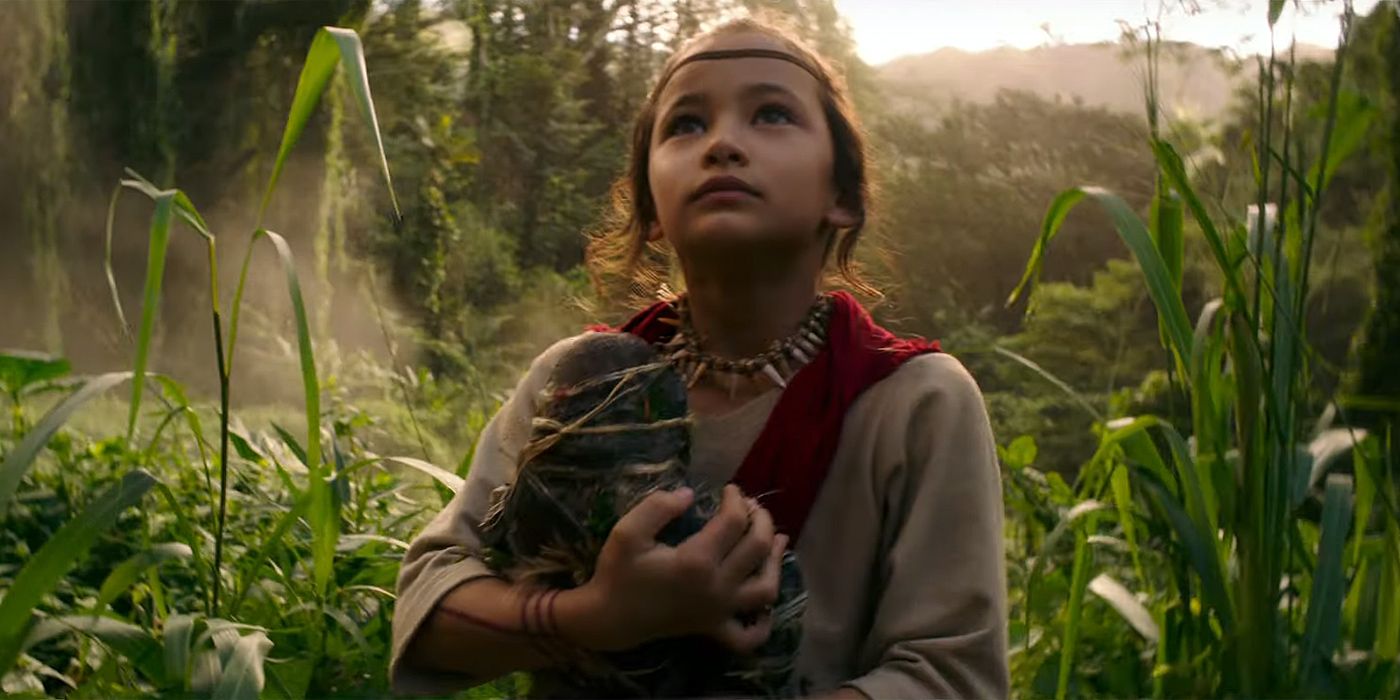
Many characters in the MonsterVerse saga have appeared over more than one movie, from Dr. Sarazawa to Jia.
MonsterVerse may not have the same individual brilliance from its human characters as Final Wars, but it does have deep personal bonds. At the core of most MonsterVerse films is the story of a parent and child whose life gets upturned by major kaiju events. Godzilla (2014) had the father-son duo of Joe and Ford Brody at the center of the human drama, who had to come to terms with their own estranged relationship. Godzilla: King of the Monsters (2019) found a bereaved scientist, Dr. Mark Russell, grieving the death of his son and dealing with the split in his family all because of Godzilla’s rampage in San Francisco. Continuing that trend, Godzilla vs. Kong (2021) showed another scientist and her adoptive daughter forming a close bond with the titan Kong, giving him a semblance of family for the first time since he left Skull Island. Even the TV series Monarch: Legacy of Monsters (2023) was entirely based on the family drama of the Randa children as they came to terms with their father’s legacy.
All these stories have a common familial thread. The emergence of Titans plunges the world into chaos, which affects the characters as cracks appear in the foundations of their relationships. Despite the Armageddon in Godzilla: Final Wars, the film never shows the dilemma of normal people when the Xiliens attack. Nor does it show the shared trauma of the masses as the attack wipes out an entire generation of people and lays waste to decades of progress. Final Wars is more invested in looking cool, showing off bike stunts and bullet time moves. Although the style quotient adds to the charisma of the characters, not much time goes into backstories, making their motivations cut and dry.
It is not that Godzilla: Final Wars characters are not emotionally vulnerable. But it mostly comes from the female characters as the men display their machismo on screen. However, the women are not simple background characters by any means, as they take an active part in the plot in almost any pivotal moment. Yet, they ultimately become romantic partners to the leads and have to listen to sexist remarks, which the script largely downplays as humor. MonsterVerse characters have no set gender roles. The influence of modern sensibilities and the passage of time has diluted barriers and let old archetypes break out of the mold, letting characters have different sides to them. And on a technical note, even the production value is now better, twenty years since the last Millennium Era movie.
Humans Will Always Be an Essential Part of Godzilla Stories
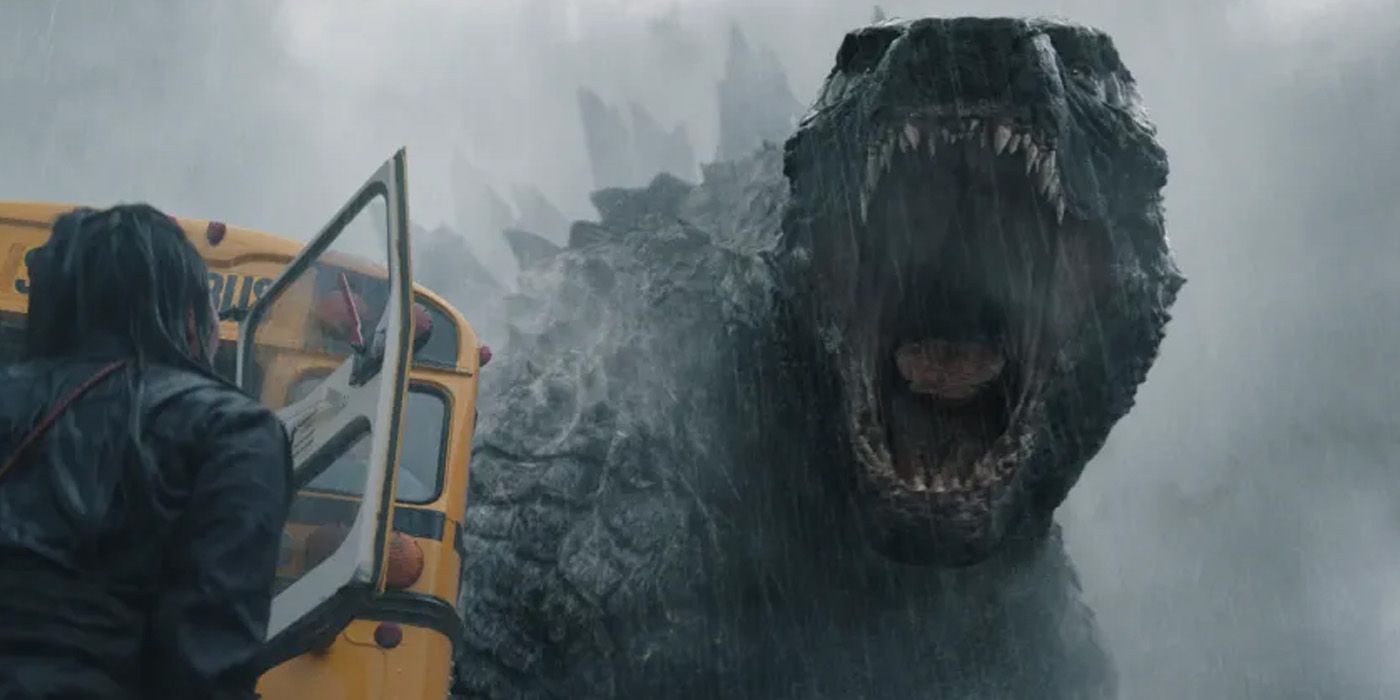
In the Showa Era, Toho gave the monsters their own place named Godzilla Island to duke it out between themselves away from the densely populated cities. But, for narrative reasons, the films still needed humans to expose the mystery and engage with the various elements of the plot. While fans mostly come to enjoy the gladiatorial matches between monsters, any moviegoer knows how bare-bones a film devoid of humans would be. As both Titans and humans share the same world, it is immensely tricky not to go overboard when bringing the two ecosystems together. But not placing humans before the God-like presence of kaiju defeats the purpose of having a giant monster act in retribution for humanity’s crimes against nature if there is no humanity to bear witness to the destruction.
Despite what fans these days think about 2004’s Godzilla: Final Wars, the film is not without its flaws, with the glaringly obvious one being its loud style. Final Wars could have picked up a few tricks from the MonsterVerse, but it is twenty years too late for that. So, it falls upon Legendary Pictures to carry the torch of a bygone era while not falling into the same bygone trappings. After starting strong with characters like Ford Brody, Mark Russell, and almost everyone in Kong: Skull Island, the MonsterVerse of late does not remember how to have complete character arcs. It may not be wise to copy Final Wars‘ template, but realizing what has gone wrong is half the battle won.

